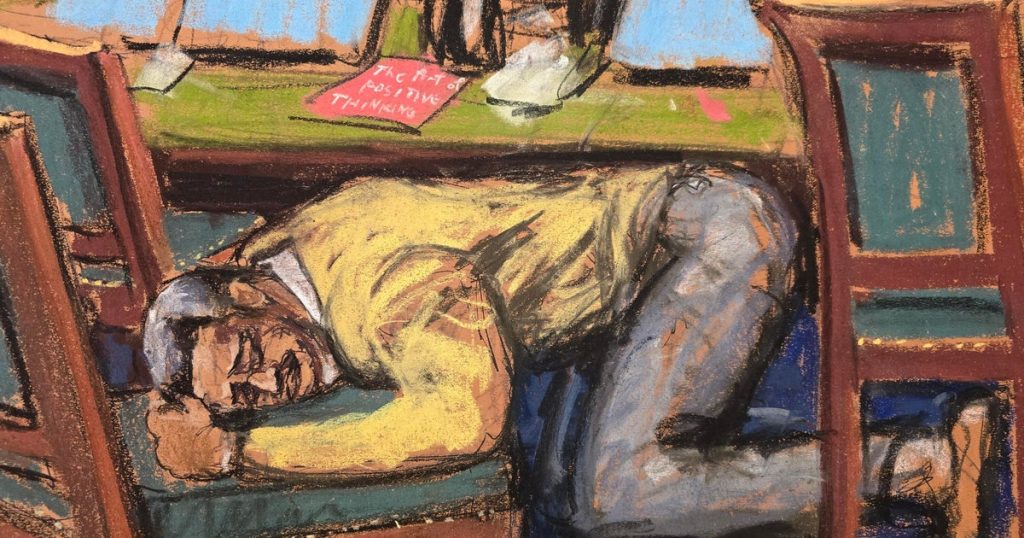In a highly publicized trial that captivated attention over the past two months, Sean “Diddy” Combs was acquitted of the three most serious charges against him but found guilty on two lesser prostitution-related counts. The verdict was reached after extensive testimony and evidence. As the decision was announced, emotions ran high, with Combs instinctively falling to his knees in prayer, underscoring the personal stakes of the case.
| Article Subheadings |
|---|
| 1) Combs’ Emotional Reaction to the Verdict |
| 2) Support from Family and Friends |
| 3) Public Interest in the Trial |
| 4) Trial Dynamics and Crowd Control |
| 5) Legal Implications and Next Steps |
Combs’ Emotional Reaction to the Verdict
When the jury’s verdict was read on July 2, 2025, Combs exhibited a profound emotional response. Reports indicate that he initially pumped his fist in joy upon hearing the first ‘not guilty’ declaration. Witnesses described his reaction as one of relief and elation, especially given the weight of the allegations he faced.
“Sean Combs pumped his fist at one point when they said that first ‘not guilty,'” commented a reporter covering the event.
This moment of triumph was juxtaposed with the reality that he was still facing convictions on two lesser counts. Following the announcement, Combs fell to his knees, leaning on his chair in court to pray. This poignant act illustrated not just the burden of the trial but the personal significance of the jury’s decisions.
Support from Family and Friends
The courtroom was packed with Combs’ close family and friends who united to support him during the verdict reading. His three daughters, sons, and mother were present, contributing to an atmosphere charged with emotions ranging from anxiety to relief. After the verdict, a wave of applause erupted from his family, showcasing the strong backing they provided throughout the trial. Some reports indicated that Combs was visibly clapping and acknowledging their support.
“They were just cheering, and it’s such an interesting visual,”
noted the reporter. Even after the intense moments in court, Combs’ mother, Janice Combs, gave a thumbs up as she exited the courthouse, suggesting optimism amid the situation.
Public Interest in the Trial
The Combs trial drew remarkably high public interest, attracting a consistent audience throughout its proceedings. Journalists like Alice Gainer remarked on the unprecedented level of fascination surrounding the case. “There’s just so much going on, and there’s such huge interest in this case,” she stated, emphasizing the trial’s unique position in legal and pop culture narratives. It was reported that crowds consistently gathered outside the courthouse, and social media buzzed with discussions about the daily events of the trial. This widespread engagement, characterized by filled seats and overflow rooms set up for those unable to enter the main court, signaled a hunger for developments in this high-profile case.
Trial Dynamics and Crowd Control
As the crowds grew increasingly larger, the courts faced unique challenges relating to crowd control. The New York Police Department implemented security measures, including barricades to manage the throngs of supporters and spectators. “They had to set up multiple overflow rooms at one point just to make sure they could meet the demand,” noted Gainer. With the significant media coverage, the public’s fascination translated into a physical presence outside the courtroom, which necessitated enhanced security protocols. Such dynamics not only heightened the drama surrounding the trial but underscored the unique times in which celebrity and legal matters converge in the public eye.
Legal Implications and Next Steps
While Combs secured not guilty verdicts on the most serious charges, the implications of the two lesser convictions remain significant. Legal analysts emphasize that the findings will influence the remainder of Combs’ career and personal life. The path forward involves navigating potential appeals and understanding the ramifications of the convictions. Legal experts suggest that Combs’ team may challenge the verdicts, citing procedural concerns or insufficient evidence. As the dust settles from this high-profile case, observers will be watching closely to see how Combs manages the fallout and what strategies his legal team employs as they chart the next course of action.
| No. | Key Points |
|---|---|
| 1 | Sean “Diddy” Combs was acquitted of the three most serious charges against him. |
| 2 | The verdict was delivered on July 2, 2025, with Combs displaying intense emotions after the announcement. |
| 3 | Support from family and friends was a pivotal element during the highs and lows of the trial. |
| 4 | There was an unprecedented public interest, characterized by large crowds outside the courthouse. |
| 5 | The two lesser convictions leave open pathways for potential appeals and a challenging future for Combs. |
Summary
The outcome of Sean “Diddy” Combs’ trial marks a significant moment in celebrity culture intersecting with the legal system. While he celebrated a partial victory, the remaining convictions present a complex challenge that will evolve in the upcoming months. This case will likely continue to draw public interest, showcasing the interplay between notoriety and accountability. As Combs navigates the implications of the verdict, observers remain keenly attuned to the legal repercussions and potential adjustments in his public and private life.
Frequently Asked Questions
Question: What were the key charges against Sean “Diddy” Combs?
Combs faced serious allegations including three major criminal charges and was ultimately found guilty on two lesser prostitution-related counts.
Question: How did located journalists describe public interest in the trial?
Journalists indicated that the trial garnered an unprecedented level of interest, with consistent crowds attending and heavy social media engagement during the proceedings.
Question: What actions might Combs’ legal team take following the verdict?
Legal experts suggest that Combs’ team could explore options for an appeal, given the remaining convictions which could have ramifications for his future. They may address concerns regarding the trial’s procedures or the evidence presented.


